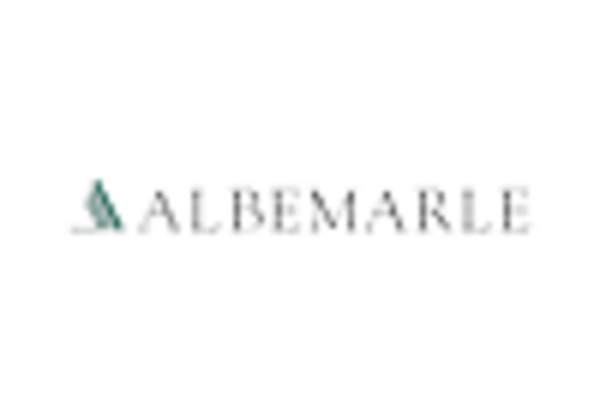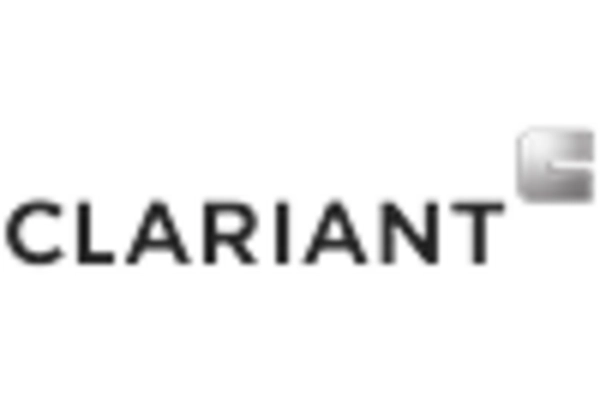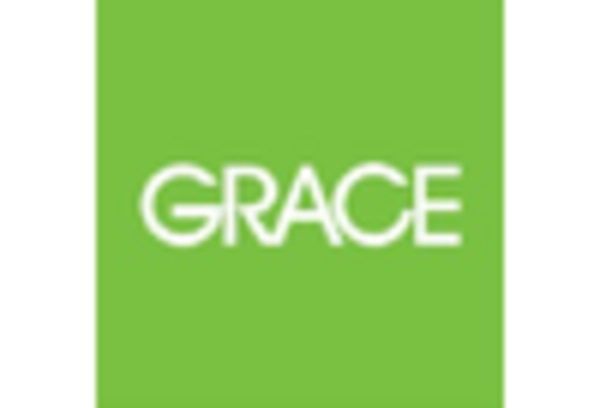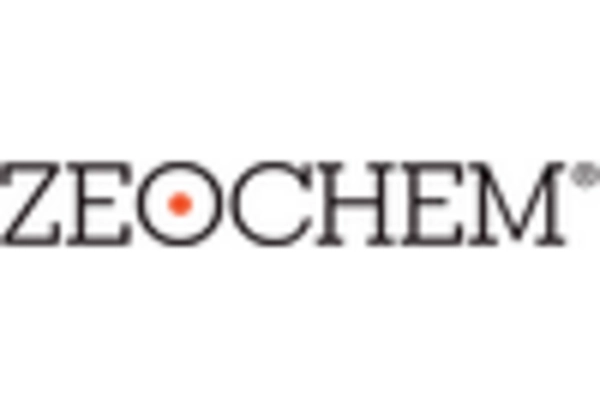Market Share
Synthetic Zeolites Market Share Analysis
Innovative work for Cutting edge Plans: • Driving organizations in the Synthetic Zeolites market put vigorously in innovative work to make progressed details. Creating imaginative engineered zeolites with upgraded properties like higher surface region, further developed adsorption limit, and more noteworthy dependability gives organizations an upper hand. Item Broadening Across Ventures: • To catch a bigger piece of the pie, organizations centre around enhancing their item contributions across different enterprises. Tweaking engineered zeolites to meet the particular requirements of utilizations in areas like petrochemicals, cleansers, and horticulture permits organizations to take special care of a more extensive client base. Worldwide Market Extension: • The synthetic zeolite market is universally cutthroat, and organizations seek after techniques for global development. Laying out areas of strength for a presence through essential organizations, acquisitions, and compelling circulation networks empowers organizations to take advantage of different business sectors and increment their general portion of the overall industry. Rigid Quality Control and Certificate: • Quality control is central in the synthetic zeolites industry. Organizations put resources into severe quality control measures and look for industry affirmations to guarantee clients of the dependability and execution of their items. This obligation to quality upgrades brand notoriety and market situating. Ecological Supportability Practices: • With expanding accentuation on supportability, organizations in the market embrace eco-accommodating creation rehearses. Creating engineered zeolites through earth cognizant strategies and advancing their utilization in green applications lines up with market drifts and draws in ecologically cognizant clients. Strategic Partnerships with Customers: • Building solid organizations with end clients is an essential move. Teaming up with organizations in ventures like refining, wastewater treatment, and horticulture permits engineered zeolite makers to fit their items to explicit applications, cultivating long haul connections and setting piece of the pie. Instructive Effort Projects: • The advantages of synthetic zeolites may not be fully appreciated by a lot of industries. Organizations start instructive effort projects to bring issues to light about the flexible uses of engineered zeolites, showing their part in further developing cycles like catalysis, adsorption, and particle trade. Cost Intensity: • Giving expense cutthroat engineered zeolite arrangements is fundamental for market situating. Organizations that can offer excellent items at cutthroat costs gain favour with clients, particularly in cost delicate businesses, adding to expanded piece of the pie. Transformation to Industry Patterns: • Staying informed concerning arising industry patterns is critical for supported achievement. Organizations that proactively adjust to changes in guidelines, market requests, and mechanical progressions position themselves as industry pioneers, guaranteeing proceeded with importance and piece of the pie development. Interest Underway Productivity: • Guaranteeing proficient and financially savvy creation processes is an essential need. Better positioned to offer competitive pricing and secure a larger market share are businesses that make investments in improving overall efficiency, reducing production costs, and manufacturing method optimization. Responsive Client assistance: • Offering phenomenal client support is a key differentiator. Organizations that offer responsive and customized help, including specialized help and item customization, make a positive client experience, encouraging reliability and rehash business. Computerized Promoting and Online Presence: • Embracing computerized showcasing systems and it is crucial to keep areas of strength for a presence. Organizations that influence computerized stages for promoting, item data spread, and client commitment improve their perceivability, contacting a more extensive crowd and remaining cutthroat in the cutting-edge market scene.


















Leave a Comment